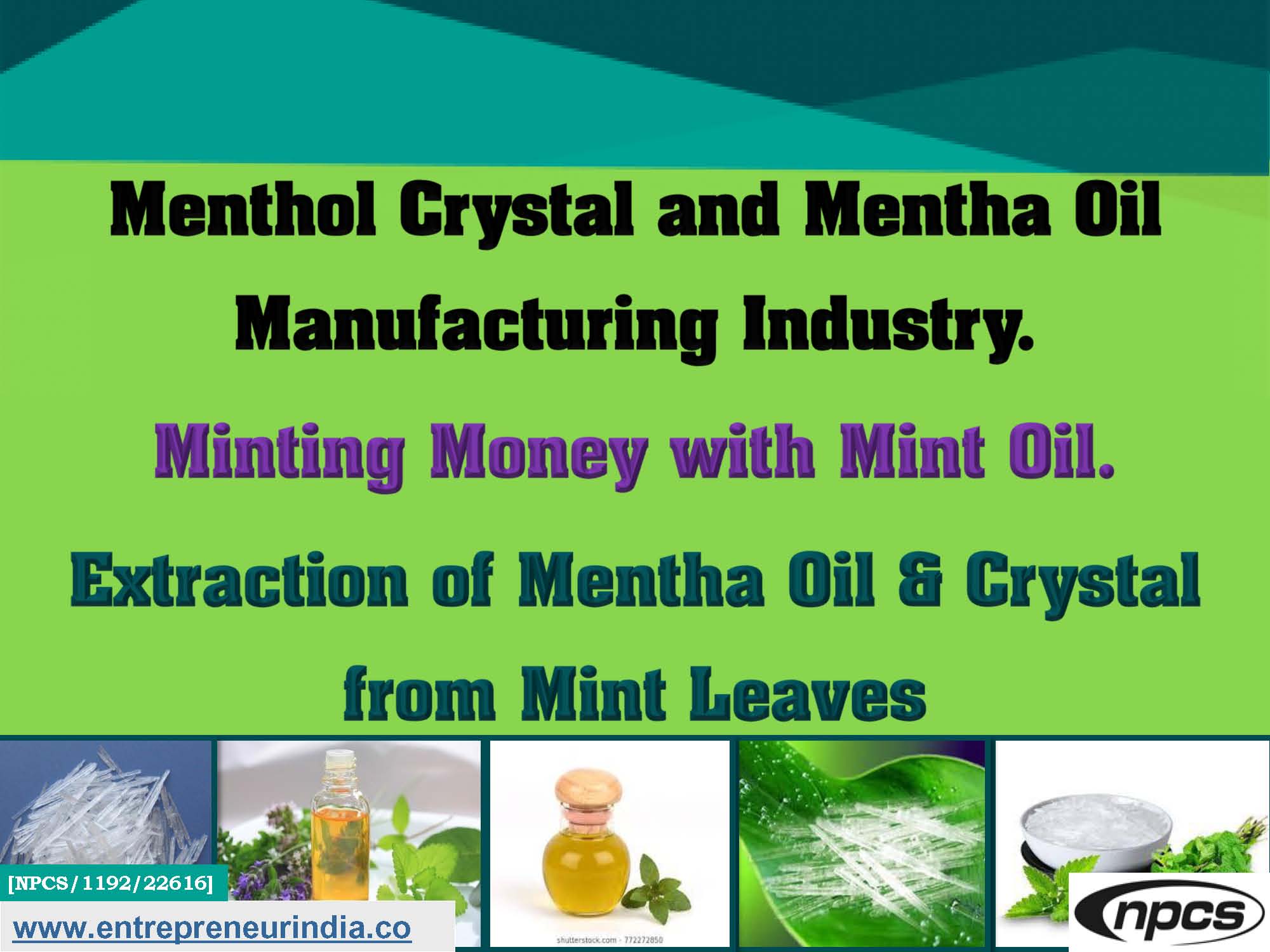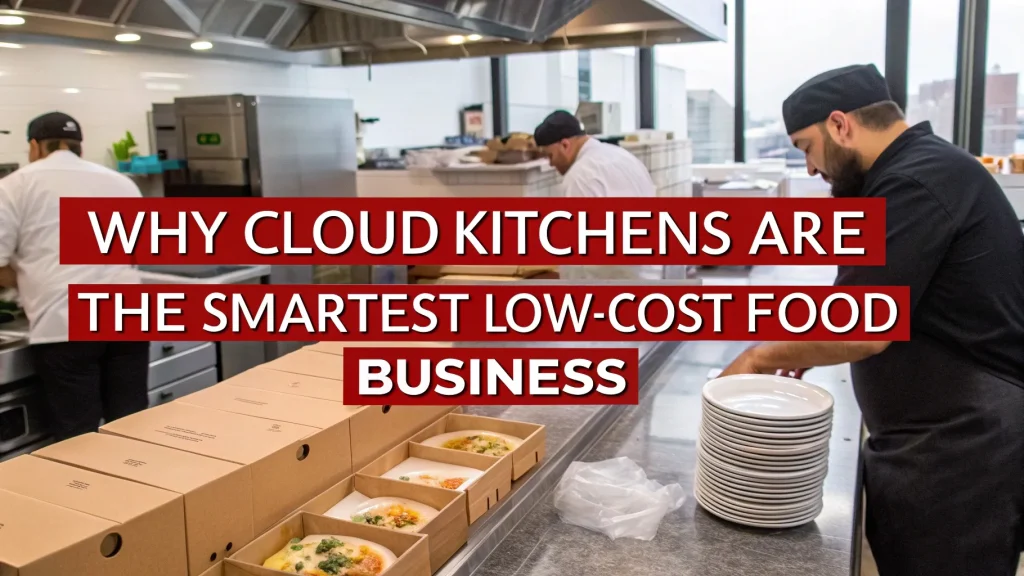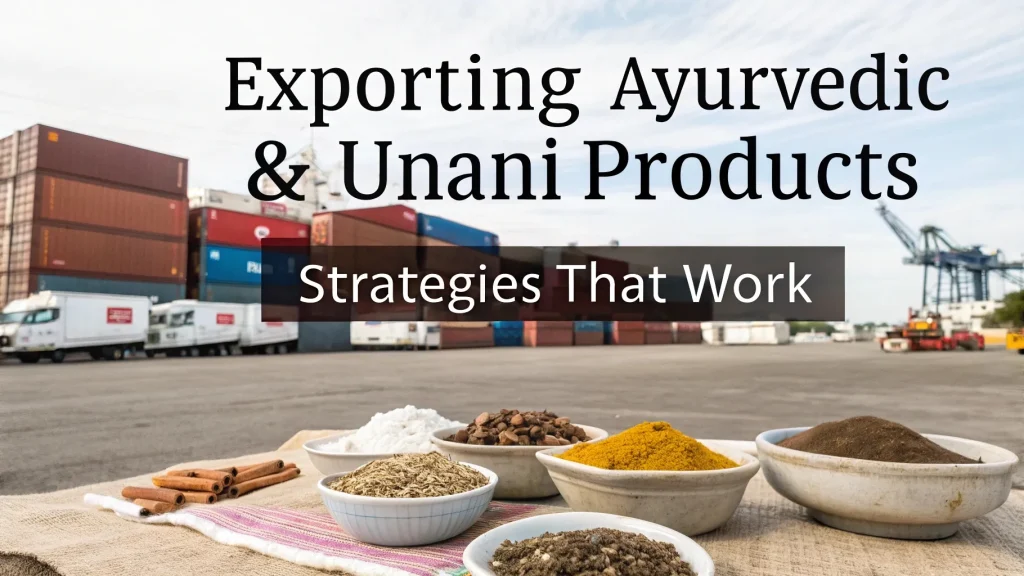
The Menthol Crystal and Mentha Oil Manufacturing Industry plays a crucial role in the global flavor, fragrance, pharmaceutical, and cosmetic sectors. Derived from natural mint plants, menthol and mentha oil are valued for their aromatic, therapeutic, and cooling properties. Their increasing demand across multiple industries has made this manufacturing business a lucrative and sustainable venture, especially for agribusiness entrepreneurs and chemical manufacturers.
With India being the largest producer and exporter of mentha products, this industry offers significant potential for both domestic success and export-driven revenue.
Understanding Mentha Oil and Menthol Crystals
Mentha oil is extracted from Mentha arvensis (Japanese mint) through steam distillation. The key component of this oil is menthol, a solid, crystalline compound known for its intense cooling effect.
Key Products in the Industry:
-
Mentha Oil: Used in aromatherapy, balms, toothpaste, food flavorings, and perfumes.
-
Menthol Crystals: Widely applied in pharmaceuticals (cough drops, inhalers), cosmetics (lotions, shampoos), and oral care.
This versatile application spectrum ensures consistent market demand throughout the year.
Market Potential and Demand
The Menthol Crystal and Mentha Oil Manufacturing Industry is thriving due to:
-
Rising usage in herbal and Ayurvedic products
-
Increasing demand in the food & beverage sector for mint flavors
-
Expanding global cosmetic and personal care industries
-
Export opportunities to the USA, Europe, Middle East, and Southeast Asia
India alone accounts for over 80% of global mentha production, making it a global hub for menthol exports. The demand for natural mint-based compounds is expected to grow at a CAGR of over 7% in the coming years.
Manufacturing Process
1. Cultivating Mentha
Farmers cultivate mint plants in North India between January and March.
They harvest the plants in May or June, ensuring that fresh leaves are processed within 24 hours after harvesting to preserve quality.
2. Extracting Mentha Oil (Steam Distillation Process)
Workers load fresh mint leaves into a steam distillation unit.
They then pass steam through the leaves, which releases essential oils.
The vapors condense into a mix of oil and water, and the team separates the oil, filters it, and stores it in steel drums for further use.
3. Producing Menthol Crystals (Crystallization)
Technicians cool the mentha oil to temperatures between -5°C and -10°C in specialized crystallizers.
As the temperature drops, menthol crystals form.
They then separate the crystals using centrifugation, dry them, and pack and grade them based on purity.
They either reuse or sell the remaining oil as Dementholized Oil (DMO).
4. Packaging and Storing
Teams pack the menthol crystals in HDPE bags or drums.
They store the mentha oil in airtight containers to maintain its quality and extend shelf life.
Raw Materials Required
-
Mentha Arvensis Leaves
-
Water (for steam generation and condensation)
-
Fuel (wood, coal, or diesel for boilers)
-
Stainless steel tanks for processing and storage
Most raw materials are easily available in India, especially in Uttar Pradesh, Bihar, and Punjab, where mentha farming is prevalent.
Machinery and Equipment
-
Steam Distillation Units (SS or MS)
-
Condensers and Separators
-
Crystallization Tanks
-
Centrifuge Machines
-
Cooling Units/Chillers
-
Weighing and Packaging Machines
-
Storage Drums (SS or HDPE)
A small to medium-scale unit can be started with an investment of ?25–50 lakhs, while a large-scale, export-grade plant may require ?1–2 crores.
Space and Infrastructure Requirements
-
3,000 to 10,000 sq. ft. for setup depending on capacity
-
Industrial-grade flooring and ventilation
-
Water and power supply
-
Proper waste disposal and effluent treatment setup
-
Secure storage for raw material and finished goods
A rural or semi-urban area close to mentha farms can significantly reduce input costs and transportation expenses.
Licenses and Approvals Needed
To operate a Menthol Crystal and Mentha Oil Manufacturing Unit, you must secure:
-
Factory License
-
MSME Udyam Registration
-
Pollution Control Board Clearance
-
Drug License (for pharma-grade production)
-
FSSAI Registration (if selling food-grade menthol)
-
GST Registration
-
Export License (if trading internationally)
Compliance with ISO and BIS standards ensures better market acceptability and trust.
Target Market and End-Use Industries
Menthol and mentha oil are used extensively in the following industries:
-
Pharmaceuticals (balms, cough syrups, inhalers)
-
Personal Care (shampoos, soaps, creams)
-
Oral Care (toothpaste, mouthwash)
-
Confectionery (mint-flavored gums and candies)
-
Tobacco and Pan Masala
-
Essential Oils and Aromatherapy
-
Perfumery and Cosmetics
Distributors, wholesalers, export agents, and direct sales to manufacturers are all viable channels.
Export Opportunities
India exports menthol products to over 100 countries. Major buyers include:
-
USA
-
Germany
-
UK
-
China
-
Japan
-
UAE
With rising demand for natural cooling agents, the export market for menthol continues to expand. Exporters must meet quality certifications like USFDA, Halal, Kosher, and REACH compliance.
Profitability and ROI
Here’s a basic profit outline:
-
Cost of production (menthol crystals): ?600–?800 per kg
-
Selling price (domestic/export): ?1,000–?1,500 per kg
-
Mentha oil selling price: ?1,000–?1,300 per liter
-
Profit margin: 25%–40% (depending on market rates and quality)
A well-managed plant can generate monthly revenue of ?10–30 lakhs, achieving break-even in 1–2 years.
Conclusion
The Menthol Crystal and Mentha Oil Manufacturing Industry is a high-potential business opportunity for those looking to enter the natural product and aroma chemicals sector. With India’s dominant position in mint cultivation and rising global demand, this industry promises consistent growth, export potential, and strong margins. With the right machinery, sourcing, and quality control, entrepreneurs can build a profitable and globally competitive business.
Niir Project Consultancy Services
An ISO 9001:2015 Company
106-E, Kamla Nagar, Opp. Spark Mall,
New Delhi-110007, India.
Email: npcs.ei@gmail.com , info@entrepreneurindia.co
Tel: +91-11-23843955, 23845654, 23845886, 8800733955
Mobile: +91-9811043595
Website: www.entrepreneurindia.co , www.niir.org





